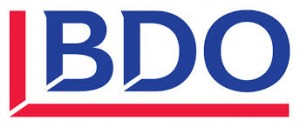Strategies for Building Effective Relationships with Career Advisors as a Graduate
As a graduate embarking on your professional journey, building effective relationships with career advisors can be a valuable asset in navigating the complex world of careers and employment. Career advisors possess a wealth of knowledge and expertise that can help you make informed decisions, explore opportunities, and successfully transition into the workforce. Here are some strategies to help you establish and nurture productive relationships with career advisors.
- Actively Seek Guidance: Take the initiative to seek out career advisors and utilize the resources available to you. Attend career fairs, workshops, and networking events where career advisors are present. Schedule regular appointments to discuss your goals, concerns, and seek their advice on various aspects of your career development. Show a genuine interest in their expertise and demonstrate your commitment to personal and professional growth.
- Be Prepared and Clear: Before meeting with a career advisor, take the time to reflect on your goals, strengths, and areas of improvement. Prepare a list of questions or topics you would like to discuss. This will help you make the most of your time together and ensure that you address the specific areas you need guidance on. Be clear about your career aspirations and communicate them effectively to your advisor, so they can provide tailored advice and support.
- Listen and Learn: When meeting with a career advisor, actively listen to their insights and guidance. They have worked with numerous students and graduates and have a wealth of knowledge about the job market and industry trends. Be open to new ideas, perspectives, and constructive feedback. Take notes during your meetings to capture key points and suggestions. Demonstrating a willingness to learn and implement their recommendations will foster a stronger relationship with your career advisor.
- Establish Realistic Expectations: Understand that career advisors are not miracle workers. They are there to guide and support you, but ultimately, your success depends on your efforts and commitment. Career development is a gradual process, and it may take time to achieve your goals. Recognize that career advisors can provide valuable resources, connections, and advice, but they cannot guarantee specific outcomes. Manage your expectations and focus on utilizing their expertise to maximize your opportunities.
- Follow Through: Career advisors often provide recommendations for action steps to help you progress in your career journey. It’s essential to follow through on these suggestions and take proactive steps towards your goals. Whether it’s refining your resume, developing new skills, or networking with professionals in your field, demonstrate your commitment by putting their advice into practice. Update your career advisor on your progress and seek further guidance as needed. This will demonstrate your dedication and build trust in the relationship.
- Maintain Ongoing Communication: Building an effective relationship with a career advisor is not a one-time event. It requires ongoing communication and engagement. Keep them informed about your job search activities, interview experiences, and career milestones. Share your successes and challenges, and seek their guidance in times of uncertainty. Regularly check in with your career advisor to update them on your progress and seek their input on new developments. By maintaining open lines of communication, you can continue to benefit from their expertise even after you graduate.
- Show Appreciation: Finally, express gratitude for the support and guidance provided by your career advisor. A simple thank you can go a long way in building a positive and lasting relationship. Remember that career advisors invest their time and effort to help you succeed, and acknowledging their contributions demonstrates your professionalism and appreciation.
In conclusion, building effective relationships with career advisors as a graduate requires proactive engagement, active listening, and a commitment to personal growth. By seeking guidance, being prepared, and maintaining ongoing communication, you can establish a mutually beneficial relationship that will support your career development and help you navigate the professional world with confidence. Embrace the expertise and guidance of your career advisor, and leverage their insights to make informed decisions that align with your goals.


